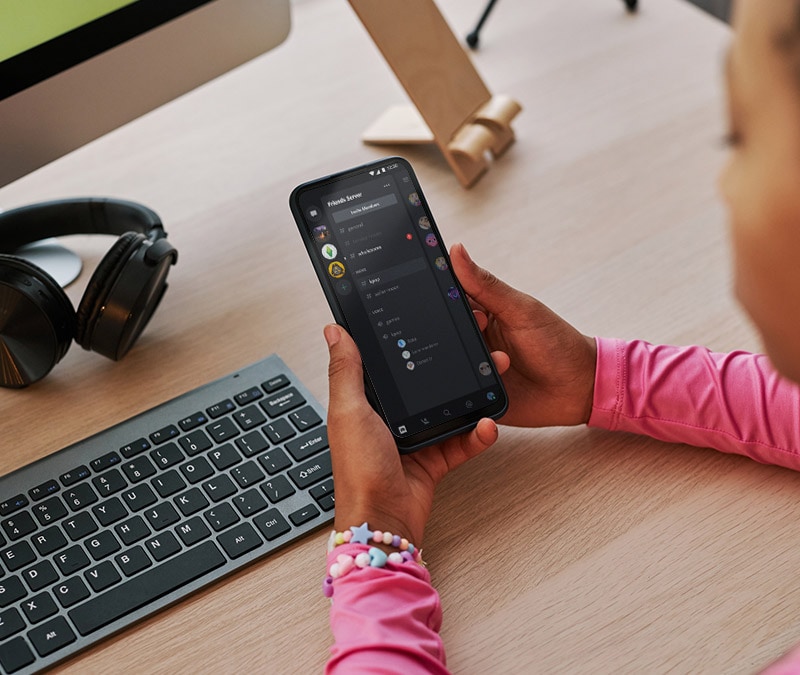Are your smart toys watching this holiday season?
Parents are on the hunt for the latest and greatest gifts—and for many, that means interactive, internet-connected smart toys. But here’s the big question: could these toys be watching your kids? Here’s what you need to know to help keep your child protected while they enjoy their playtime.

Vintage electronic toys from the late ‘90s and early ‘00s—think Tamagotchis, Furbies, and Game Boys—seem rather rudimentary when compared to the toys today. Now, a lot of toys have an electronic component of some sort—that is if you can’t connect then to your Wi-Fi network with ease.
The demand for smart toys is increasing, and the more accessible they become, the more you have to be careful. Smart toys can use your data in surprising ways, collecting personal information and potentially sharing it with third parties.
Keep reading to learn how these devices work, the potential risks, and how you can help protect your family.
What are smart toys?
Smart toys are internet-connected devices designed to engage children with fun, educational, and interactive experiences. From AI-driven dolls to voice-activated robots, these toys captivate young minds by learning their preferences, adapting responses, and offering custom-tailored interactions.
But beneath the fun lies a trade-off: many smart toys gather a significant amount of data from their users. After all, how can the toy’s system adapt to your kid’s needs without collecting information on your child’s behavior.
This data can include voice recordings, names, locations, and even the device owner’s email address. While some of this data is used to enhance the toy's functionality, it’s essential to consider the privacy implications. What happens to this information once collected? Is it stored securely or shared with third parties?
The data smart toys collect
Smart toys rely on various types of personal data to function. Here are some of them:
- Voice recordings: Toys with voice recognition capture and analyze conversations. While this feature allows for interactive play, it raises concerns about how recordings are stored—on the device, in the cloud, or with third-party companies.
- Location tracking: GPS-enabled toys can track a child's whereabouts, which is useful for features like interactive games but can become a risk if the data is not encrypted.
- User profiles: Names, email addresses, and preferences often enhance the toy’s user experience but could also be sold to advertisers or hackers in the event of a breach.
This leaves us with the question: is this data collection necessary? While it might enhance your child's play experience, it’s essential to weigh the benefits against the potential risks.
Someone might be listening
Many smart toys act like miniature computers—and like any computer, they’re vulnerable to hacking. Poor security measures, such as weak passwords or unencrypted data transfers, can leave these devices at risk. For example, the My Friend Cayla doll was found to be hackable, allowing unauthorized users to listen in on private conversations. In addition to privacy risks, companies may want to monetize the data collected from your kid.
Insecure connections also create opportunities for cybercriminals to access sensitive data. Even the most seemingly innocuous toy can become a doorway for privacy invasions if manufacturers don’t prioritize security. This is why understanding a toy's security features is just as important as choosing the right toy for your child.
8 Smart toy security tips for parents
Fortunately, smart toys can be used safely with the right precautions. Here are some tips to protect your family’s privacy:
- Choose reputable brands. Stick with well-known manufacturers that have a track record of strong privacy and security measures.
- Check out industry reviews. For example, the Smart Toy Awards recognize ethical and responsibly made toys that use AI and The Toy Association has even helped develop the first toy safety standard and continues their work with Play Safe.
- Know the features. Understand all the capabilities of the toy and how they function.
- Read the privacy policies. Be aware of what data is collected, how it’s stored, and whether it’s shared with third parties.
- Secure your Wi-Fi network. Use a strong, unique password to protect your home network.
- Teach your child cybersecurity basics. Explain why it’s important not to share personal details with their toys.
- Understand that nothing is free. If a toy’s app or features are free, consider how the company may profit—likely by collecting user data.
- Update your toys’ firmware. Ensure the latest security patches are installed to protect against vulnerabilities.
Keep your family secure during the holidays
There’s no need to sacrifice privacy and security, especially during the holiday season when new tech enters the home. Taking steps to secure your family’s devices ensures that the joy of giving isn’t overshadowed by potential privacy risks. Stay safe and happy holidays!
Editorial note: Our articles provide educational information for you. Our offerings may not cover or protect against every type of crime, fraud, or threat we write about. Our goal is to increase awareness about Cyber Safety. Please review complete Terms during enrollment or setup. Remember that no one can prevent all identity theft or cybercrime, and that LifeLock does not monitor all transactions at all businesses. The Norton and LifeLock brands are part of Gen Digital Inc.




Want more?
Follow us for all the latest news, tips, and updates.